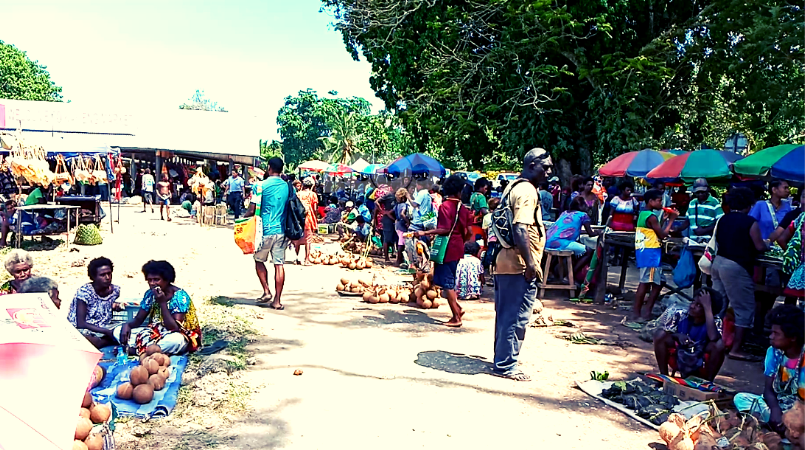
The Government is releasing K113,000,000 from its coronavirus Economic Stimulus Package to increase the production and quality of home-grown staple foods, ensuring food security and supporting primary industry incomes.
“This agriculture and food security funding, the biggest element of our K600 million in direct budget funding support on COVID-19, recognises the fact that agriculture underpins the livelihoods of most Papua New Guineans,” Treasurer Ian Ling-Stuckey said. “Over 85 percent of the population depends on subsistence agriculture for consumption and cash cropping for income.
“COVID-19 is a tricky, hidden enemy. Good decisions by the government have helped protect PNG. But there is still great uncertainty, and the experts are telling us that we must stay alert.
“If the pandemic starts spreading rapidly in our country, there is likely to be serious disruptions to usual food supplies. By returning to garden and planting more food crops, our people can be better prepared. This battle is likely to be a long one – we are empowering our people to help protect their food security and nutrition for their families,” continued Ling-Stuckey.
K1,000,000 is being provided to each District Development Authority and Provincial Executive Committee to be used for programs that improve food security and strengthen agriculture production through their COVID-19 subaccounts (K111,000,000 in total).
“We recognise that each district and province will have different needs in the development of food security for its citizens so we want to empower them to make the decisions that are right for their local communities.
“A key element of this decentralised assistance is additionality. Funds must be used for activities that are in addition to those already planned for administration budgets. The funds must increase the level of agricultural support provided by administrations.”
The main focus would be on extension services and grants to improve crop production and quality. The funds must be directed to agriculture and food security programs. For example:
- The purchase and distribution of improved seeds or seedlings.
- Purchase of essential equipment such as rice or coffee mills.
- Purchase of garden tools for distribution to farmers.
- Provision of agriculture extension services.
- Plant pest management (including fall armyworm mitigation measures).
- Livestock management (including African swine fever mitigation measures).
In addition, the Government will spend K2 million on a media campaign to encourage people to return to their gardens. Governors will also have a key role in encouraging the planting of more food crops. Awareness raising can use local leading farmers and nutrition advocates to communicate effectively to the public about food security and nutrition.
Provinces and districts are to report on all spending, in accordance with Finance Instruction 5-2020 on COVID 19 procurement and reporting requirements, which is available on the government’s procurement website (http://www.procurement.gov.pg/wp-content/uploads/2020/05/FI-05-2020-Expenditure-Control-of-Funds-for-COVID-19-Emergency-Response_signed.pdf ).
All local communities are encouraged to share photographs and progress reports on their Facebook pages on the ways they have been using these funds to support agriculture and food security.
